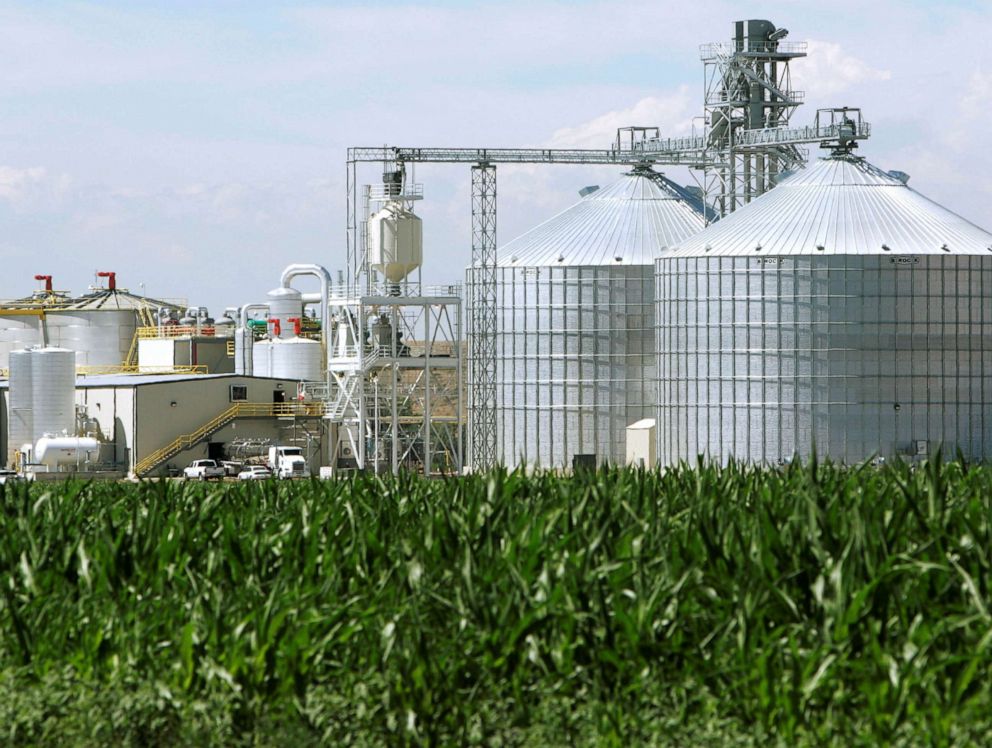Emissions must peak by 2025 to prevent disastrous climate change effects, according to new UN climate report
The report called for rapidly phasing out fossil fuels amid the energy crisis.
As the world pushes to decrease its reliance on oil, especially amid the energy crisis exacerbated by Russia's invasion of Ukraine, the United Nations' climate panel is warning that existing fossil fuel infrastructure will need to be abandoned in order to reduce global warming.
Countries are not on track to limit global warming to 1.5 degrees Celsius, the conservative figure established by the Paris Agreement, according to the latest report by the U.N. Intergovernmental Panel on Climate Change that was released Monday.
Global emissions will need to peak by 2025 at the latest, and then steeply reduce thereafter, to prevent worsening impacts, according to the report.
The report warns that "considerable fossil fuel infrastructure" will need to be abandoned to sufficiently reduce emissions, including coal assets by 2030 and oil and gas by around 2050. Countries with plans to invest in new fossil fuel infrastructure are engaging in "moral and economic madness," U.N. Secretary General Antonio Guterres said.
"Such investments will soon be stranded assets – a blot on the landscape and a blight on investment portfolios," Guterres in a press conference Monday. "But it doesn’t have to be this way. Today’s report is focused on mitigation – cutting emissions. It sets out viable, financially sound options in every sector that can keep the possibility of limiting warming to 1.5 degrees alive."

The new report laid out a road map for a wide range of solutions that could reduce global emissions, including a "substantial reduction" in fossil fuel use; deploying renewable energy on a much larger scale; electrifying as many systems as possible, including transportation; improving energy efficiency; transitioning to alternative fuels, such as hydrogen; and reducing methane emissions.
If the global community does not limit average warming to 1.5 Celsius, the world will see extreme heat, a rise in sea levels, extreme weather and threats to food and water supplies, the scientific community has warned.
It is likely the world will exceed that target in the 21st century, even if all countries meet their Paris Agreement pledges, but it is still scientifically possible to prevent the worst-case scenarios, according to the report.
"Reducing GHG emissions across the full energy sector requires major transitions, including a substantial reduction in overall fossil fuel use, the deployment of low-emission energy sources, switching to alternative energy carriers, and energy efficiency and conservation," the report states. "The continued installation of unabated fossil fuel infrastructure will 'lock in' GHG emissions."

Special Envoy for Climate John Kerry described the report as "a defining moment for our planet."
"We are currently falling short in our battle to avoid the worst consequences of the climate crisis and mobilize the urgent global action needed. But importantly, the report also tells us we have the tools we need to reach our goals, cut greenhouse gas emissions in half by 2030, reach net-zero by 2050, and secure a healthier, cleaner planet," Kerry said in a statement Monday.
IPCC reports are approved by all 195 countries that signed the Paris Agreement. The latest report was compiled by 278 authors from 65 countries.
The report "puts policymakers on notice, yet again, that the current global trajectory of heat-trapping emissions is alarmingly off-track," Dr. Rachel Cleetus, policy director and lead economist for the climate and energy program at the Union of Concerned Scientists and an official civil society observer to the IPCC Working Group III process, said in a statement.
"Their continued inaction is directly responsible for the climate crisis already here, and it has also placed the goals of the Paris Agreement at grave risk," Cleetus said. "The solutions are obvious and have been for a long time—the world needs to rapidly phase out fossil fuels and accelerate the shift to clean energy. Richer nations, including the United States, bear significant responsibility for action because of their outsize contribution to global warming emissions."
ABC News' Tracy Wholf contributed to this report.



